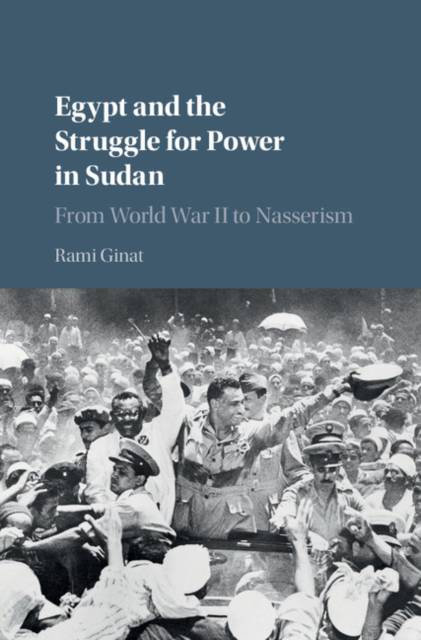
- Afhalen na 1 uur in een winkel met voorraad
- Gratis thuislevering in België vanaf € 30
- Ruim aanbod met 7 miljoen producten
- Afhalen na 1 uur in een winkel met voorraad
- Gratis thuislevering in België vanaf € 30
- Ruim aanbod met 7 miljoen producten
Zoeken
Egypt and the Struggle for Power in Sudan
From World War II to Nasserism
Rami Ginat
Hardcover | Engels
€ 125,95
+ 251 punten
Omschrijving
For decades, the doctrine of the 'Unity of the Nile Valley' united Egyptians of a variety of political and nationalist backgrounds. Many Egyptians regarded Sudan as an integral part of their homeland, and therefore battled to rid the entire Nile Valley of British imperialism and unite its inhabitants under the Egyptian crown. Here, Rami Ginat provides a vital and important revised account of the history of Egypt's colonialist struggle and their efforts to prove categorically that the Nile Valley constituted a single territorial unit. These were clustered around several dominant theoretical layers: history, geography, economy, culture and ethnography. This book, for both Middle Eastern and African historians, uses a mixture of Arabic and English sources to critically examine the central stages in the historical development of Egypt's doctrine, concentrating on the defining decade (1943-1953) that first witnessed both the pinnacle of the doctrine's struggle and the subsequent shattering of a consensual nationalist dream.
Specificaties
Betrokkenen
- Auteur(s):
- Uitgeverij:
Inhoud
- Aantal bladzijden:
- 292
- Taal:
- Engels
Eigenschappen
- Productcode (EAN):
- 9781107197930
- Verschijningsdatum:
- 20/09/2017
- Uitvoering:
- Hardcover
- Formaat:
- Genaaid
- Afmetingen:
- 167 mm x 238 mm
- Gewicht:
- 544 g

Alleen bij Standaard Boekhandel
+ 251 punten op je klantenkaart van Standaard Boekhandel
Beoordelingen
We publiceren alleen reviews die voldoen aan de voorwaarden voor reviews. Bekijk onze voorwaarden voor reviews.











